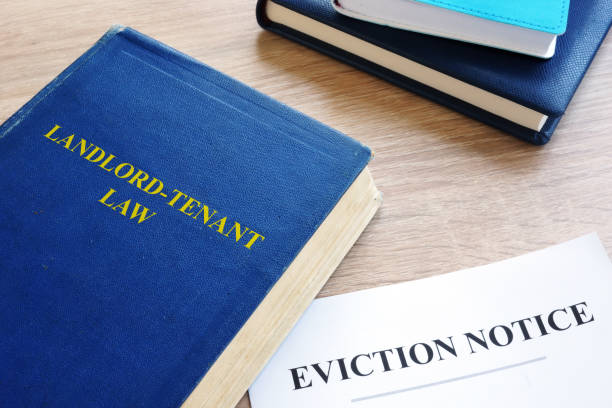
Navigating Unmarried Custody Laws in Kansas: A Detailed Guide
Navigating through the Kansas landscape of laws regarding unmarried custody can certainly be a tumultuous affair for many parents. Understanding these laws is extremely important in guarding your rights as a parent of said children. This article plunges into the main elements of the unmarried custody laws in Kansas, shedding clear light and offering pragmatic advice on how to manage custody in effectively uncomplicated ways for unmarried parents.
Understanding Custody Basics in Kansas
The family court in Kansas awards child custody through a court order that stipulates the parenting plan guided by the best interest of the child. The only ones admitted are two types of custody:
Legal Custody
In the state of Kansas, “legal custody” refers to a parent’s rights relating to making major decisions about the life of the child. It includes decisions regarding issues to do with education, health care, and religious upbringing. Joint legal custody of the children may be awarded to both parents, or sole legal custody may be awarded to one of the parents, depending on the circumstances of the case.
- Joint Legal Custody: In cases of joint legal custody, decision-making affecting every significant aspect of the child’s welfare is done mutually by the two parents. Both parents have equal rights and responsibilities for making key decisions about the upbringing of the child.
- Sole Legal Custody: If awarded sole legal custody, the parent granted sole legal custody has the right to make major decisions for the child. However, there could be an outline for some input in decisions by the non-custodial parent, but the final say lies with the custodial parent.
Physical Custody
Physical custody in Kansas is divided into two categories: residency and visitation. It is the kind of custody that will outline where the child is going to live and the amount of time the child is to stay with each parent.
- Primary Physical Custody: When a court awards one parent primary physical custody of a child, it means that the child will live with that parent the majority of the time. The court is likely to order some type of visiting arrangement for the child between the other, non-custodial parent and the child.
- Shared physical custody, or joint physical custody, is a situation whereby children share substantial periods of time with both parents. Normally, the terms are based on the agreement reached by parties to facilitate the child to have regular and meaningful contact with each parent.
Setting up a paternity for unmarried parents is a necessary evil before any party can be granted custody. Upon settling that, either parent can sue for custodial rights or visitation rights.
Establishing Paternity in Kansas
Establishing paternity is essential for unmarried fathers to gain custody rights. In Kansas, there are several ways to establish paternity:
Voluntary Acknowledgment
Voluntary acknowledgment of paternity presents the simplest way for unmarried parents to legitimize the legal connection between the father and the child. This process entails voluntary signing by both parents of an acknowledgment form attesting to paternity and confirming the identity of the biological father.
- Signing in the hospital: Sometimes, the parents will have an opportunity to sign the voluntary acknowledgment of paternity form at the hospital, shortly after the baby is born. It is an easy and convenient way to establish paternity immediately.
- Signing Later: Even if not at the hospital, parents would later be able to do it by obtaining the form from either the Kansas Department of Health and Environment or the Office of Vital Statistics.
Court Order
In some situations where there is a contest or lack of sureness as to who is actually the father of a child, legal paternity may have to be established through the court system.
- The Filing of a Petition: The filing is started by either parent making an application to the court for an order establishing paternity. The reasons in support of his or her seeking a determination of paternity shall be stated in the petition, along with such supporting proofs or documentation as may be offered.
- DNA Testing: In a case where paternity is disputed, the court may order DNA testing of the man involved to prove beyond reasonable doubt whether the said man is the biological father of the child. The test can also prove the paternity of a father with high accuracy, and in most cases, it gets used for disputed paternity.
Filing for Custody in Kansas

Once paternity has been established, either parent can file for custody. The process involves:
Filing a Petition
The process begins when a parent initiates a custody case in Kansas by filing a petition with the proper court. This legal document actually commences the case in custody and outlines what the parent is seeking custody of. Petitioning is one of the steps, and a very important one in the process of custody. It actually sets the scene for further legal procedures.
- County Jurisdiction: The petition is proper within the county of the child’s residence since the exercise of jurisdiction occurs at this level and guarantees adherence to local laws and procedures of a given jurisdiction. This, therefore, follows the reason that the court hearing the case has duly been vested with authority over the decision-making process concerning custody arrangements.
- Content of petition: It would cover all the information about the kind, the desire of the parent with respect to the nature of the issue, reason for the right of custody or otherwise, and details about the welfare of the child. It may even outline the proposed visitation schedule of the parent and some specific issues or concerns with bringing up the child.
- Legal Representation: While they do have the right to file the petition themselves, it is often the complexity of the legal system that makes these parents seek help from legal representation. An experienced family law attorney provides valuable guidance and advocacy throughout the custody process.
Serving the Petition
After the filing of the custody petition, the same has to be served upon the other parent. This essentially includes the legal notice to the other parent of the custody proceedings along with a copy of the petition. Proper service of the petition would thus assure both parents an opportunity to participate fully in the due legal process.
- Legal Notification: Proper service of the petition is important so that the other parent knows about the custody case and has the opportunity to respond. This may include personal delivery of the petition by a third party or certified mail. The service shall be the mode of service according to the rules and forms of this court.
- Response Deadline: Once served with the petition, it will usually give the other parent a number of weeks within which to respond. This will then allow the said other parent to respond formally to the allegations outlined in the petition and also bring forward their own assertions as well as evidence to the court. Failure to timely respond can result in the entry of a default judgment against the parent who does not respond.
- Importance of Proper Service: However, it is imperative that the service of the petition should be affected properly, so as to ensure that the custody proceedings are fair and transparent. This enables both parents to fully participate in the legal process and state their respective cases to the court. Furthermore, proper service establishes a clear record of notification, which is important in case of any future disputes or challenges to the custody order.
Legal Support and Resources
Navigating unmarried custody laws in Kansas can be complex. Legal advice is crucial. Resources available include:
Legal Aid of Kansas
Legal Aid of Kansas provides an irreplaceable service to anyone needing legal help who cannot afford it in traditional ways. The firm offers free or low-cost legal services to qualifying clients based on income eligibility and possibly other eligibility criteria. Legal Aid of Kansas can represent and give advice for many different legal issues and problems, including family law, matters of custody, and visitation.
- Qualification Criteria: Criteria that an individual has to meet in order to be considered eligible for services from Legal Aid of Kansas. Eligibility is mostly by application, and assistance is accorded to those applicants who have dire financial need.
- Services Provided: Legal Aid of Kansas provides a range of legal services, such as consulting, representation, and advocacy in litigation. The senior lawyers assist the interested ones in matters of custody, assist the parents in knowing their legal rights, and represent them at the point of involving themselves before the magistrate.
Kansas Bar Association
The Kansas Bar Association (KBA) is yet another relevant point of contact for people who need assistance with legal services in family law. The association hooks people with custody case issues to seasoned family law attorneys who offer them individualized advice and representation.
- Attorney Referral Service: The KBA Attorney Referral Service helps citizens of Knox County locate competent attorneys who have experience in many areas of law, including family law. It allows parents to receive a list of those attorneys living in the area and would be willing to consult about custody.
- Qualified Attorneys: The attorneys referred by the KBA are qualified under certain criteria set by the association, including the level of experience and their expertise in their respective areas of law. This should give people with legal needs reassurance their level of representation will be top-notch.
Conclusion
Unmarried custody laws in Kansas provide a framework for addressing custody issues in a fair and equitable manner. By understanding these laws and actively engaging in the legal process, unmarried parents can ensure that their rights are protected and their children’s best interests are served. Whether you are just starting this process or looking to modify an existing agreement, it is advisable to seek legal counsel to navigate this complex field effectively.
FAQ
A1: Yes, an unmarried father can get full custody if he establishes paternity and the court finds it in the best interest of the child.
A2: If parents cannot agree, the court will intervene and decide based on the child’s best interests.
A3: The duration can vary widely but typically takes several months to resolve fully.
A4: Yes, custody agreements can be modified if there is a significant change in circumstances.


